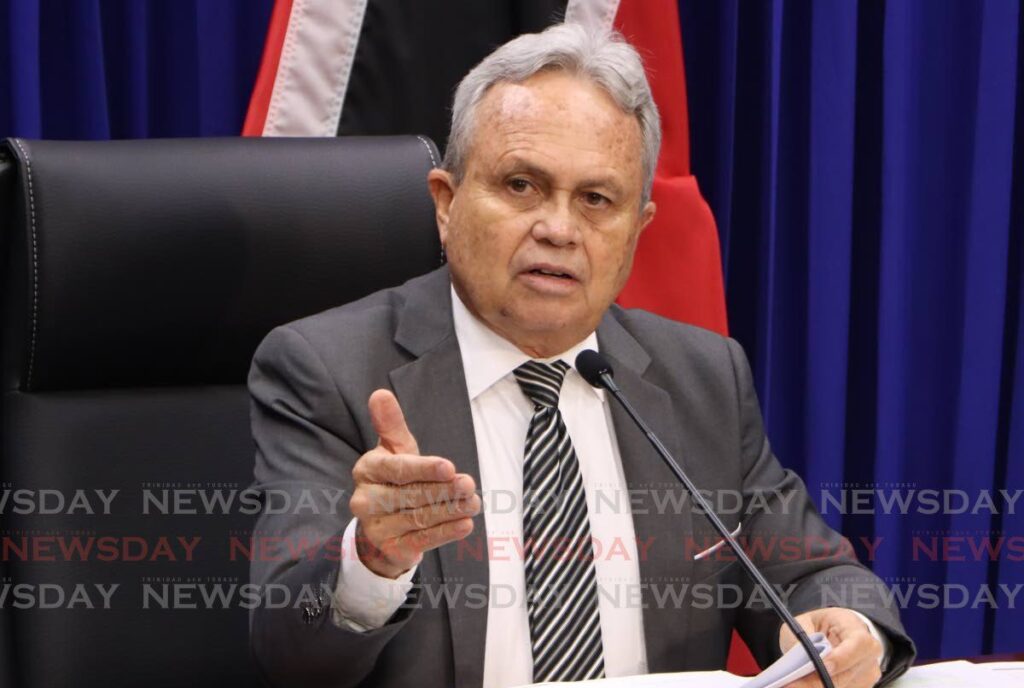Imbert: Exponential increase in health care costs

FINANCE Minister Colm Imbert says the cost of health care has increased exponentially over the last 20 years.
Imbert made this observation on June 3 before the Standing Finance Committee of the House of Representatives approved a supplementation of $495,286,000 to the Health Ministry in the 2023/2024 budget.
He said the Health Ministry requires significant sums annually to cover its expenditure with respect to all aspects of the health sector.
He estimated the figure at approximately $5 billion a year.
Imbert said the committee was being asked to supplement the ministry's budget by approximately $500 million or almost half of $1 billion.
An examination of government expenditure on health care, he continued, shows the cost is increasing exponentially.
"I recall when I was minister of health, which was some 20-odd years ago, the budget (for the ministry) was $1 billion. In that 20 years, it has increased from $1 billion to over $5 billion."
Against this background, Imbert said, "It is proving quite difficult to finance the purchase of free pharmaceuticals and all the other free services that are available in the health sector."
While the supplementation for the health ministry was important and must be done, he repeated, "To find that $500 million is going to prove to be very difficult.
"So understand, we as a country spent huge amounts of money on health care and it is something that we need to look at to make sure that we are getting value for money."
Health usually receives one of the highest allocations in the budget.
When Imbert presented the 2023/2024 budget in the House last October, health received $7.409 billion. This was second only to education, with $8.022 billion.
In the 2022/2023 budget, presented on September 26, 2022, health received $6.892 billion. This was also the second highest allocation in that budget also.
Earlier in the meeting, Health Minister Terrence Deyalsingh spoke about expenditure related to the Chronic Disease Assistance Programme (CDAP), which some of the supplementation would address.
"So for example, HPV vaccines, $1.4 million, pharmaceuticals $555.9 million."
The breakdown included:
- $132.7 million for oncology drugs
- $20.6 million for HIV drugs
- $40.5 million for antibiotics and anti-infectives
- $58.7 million for psychiatry
- $60.3 million for NCDs (non-communicable diseases)
- $84.8 million for non-pharmaceuticals ($28.4 million for medical devices, $8.3 million for diagnostics, $1.2 million for orthopaedic products $460,000 for PPE, $200,000 for HIV test kits).
CDAP was launched on February 21, 2003, with its primary objective being to reduce the burden on pharmacies and patient waiting-time at public health institutions by immediately providing approximately 257 additional dispensing facilities across Trinidad and Tobago.
The programme began by providing 20 pharmaceutical items to treat illnesses such as hypertension, glaucoma and cardiac diseases.
CDAP initially targeted people 65 and older, but was expanded in November 2004 to include all citizens. The items for the programme are procured through the National Insurance Property Development Company Ltd (Nipdec).

Comments
"Imbert: Exponential increase in health care costs"